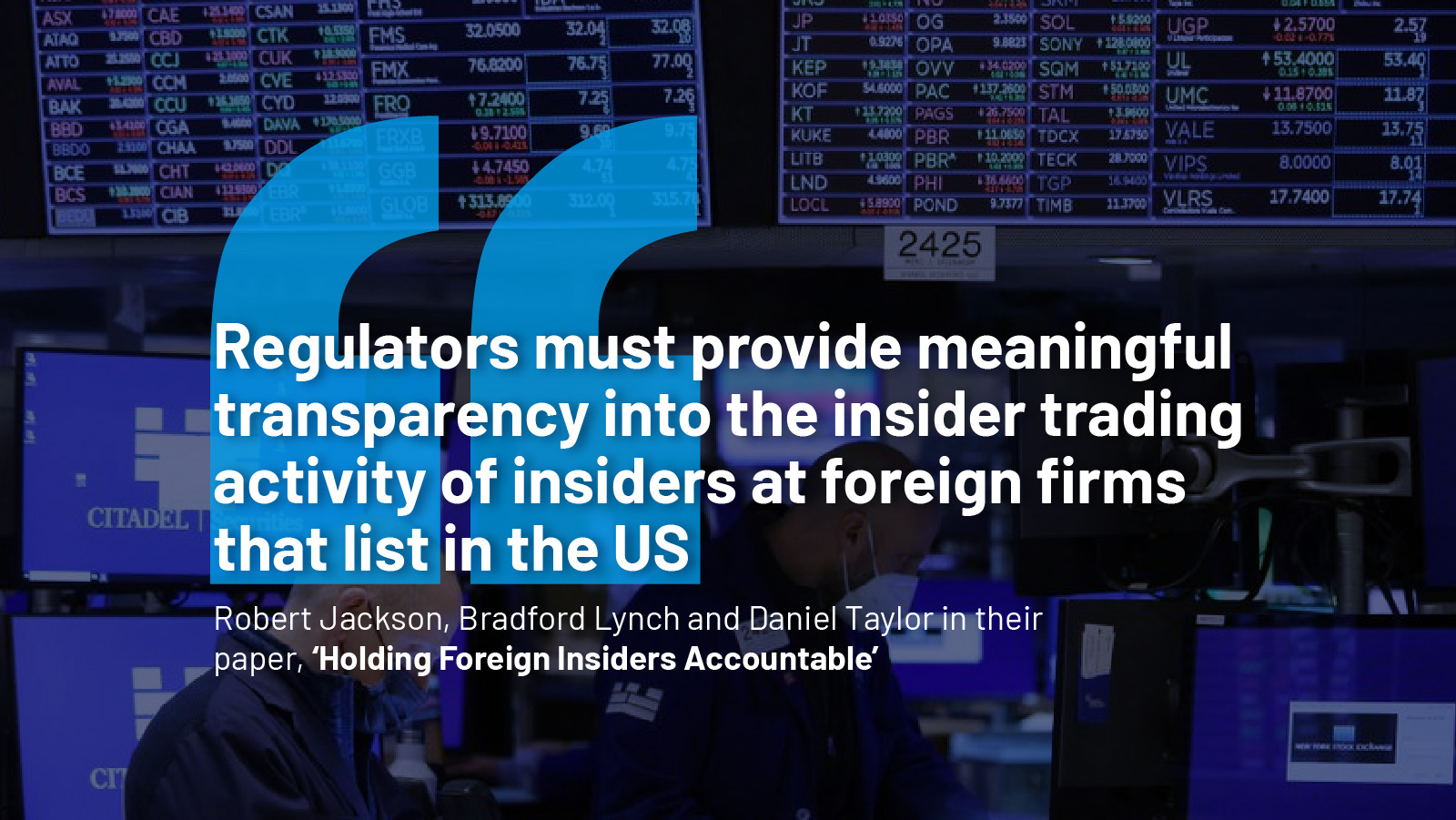Chinese investors in US-listed companies often sell their shares just before significant price declines, according to an analysis of securities filings.
That means the sellers avoided about $10 billion in losses borne by other investors over a five-year period, according to the study by Robert J. Jackson at New York University School of Law, and Bradford Lynch and Daniel J. Taylor at the University of Pennsylvania.
One year after the investors in US-listed Chinese companies sold stock, those share prices were 21% lower on average, the study says.
Also on AF: China War Risk Sees Taiwan’s TSMC Moving Fabs to US, Japan
They estimated that the $10 billion in losses avoided by Chinese investors constituted the lion’s share of the total of $11.9 billion saved by all foreign investors in US companies.
“Our findings raise the troubling prospect that insiders at foreign firms listed in the US are shielded from the well-known market discipline that accompanies the timely disclosure of such trading required of their American counterparts,” they wrote.
Highly Opportunistic
Lynch and Taylor said their findings show that foreign-firm insiders’ sales are highly opportunistic when compared with their counterparts at US companies.
“We show that officers and directors at US companies generally do not precede stock-price declines,” they wrote.

“In contrast, foreign-firm insiders often sell prior to significant declines in stock prices, whether measured over the subsequent three, six, or twelve months.”
On average, foreign-firm insiders sell prior to a 5% stock-price decline in the twelve months following their sales, they found.
Alibaba Entity Sells
The authors, as an example, cited a trade involving Alibaba Group. In October 2020, Alibaba’s payments affiliate, Ant Group, was preparing for its initial public offering, which would have been likely to increase the value of Alibaba’s stake.
Then Alibaba’s founder, Jack Ma, criticised Chinese regulators in a speech that apparently prompted government leaders to cancel the listing, sparking an 8% decline in Alibaba’s stock price.
“Unbeknownst to most investors, however, the day before that announcement, Skyscraper Limited, an entity controlled by Alibaba insiders, sold more than $150 million in Alibaba shares, avoiding millions in losses,” the authors wrote.
Disclosure of that transaction was provided not in the widely-watched form that US insiders must provide but rather on a little-known paper filing stored in file cabinets in the Securities and Exchange Commission’s reference room.
The authors urged US policymakers to revisit the SEC’s decades-old decision to exempt US-listed, foreign-domiciled firms from insider-trading disclosure.
“Regulators must provide meaningful transparency into the insider trading activity of insiders at foreign firms that list in the US,” they wrote.
“Accordingly, we urge lawmakers to promptly revisit foreign firms’ exemption from American law requiring prompt disclosure of insider trading.”
- George Russell
READ MORE:
Elon Musk and the SEC: A History – The Information
US SEC Flags Crypto, ESG as Top Monitoring Priorities
Alibaba Revamps E-Commerce Businesses, Names New CFO
























